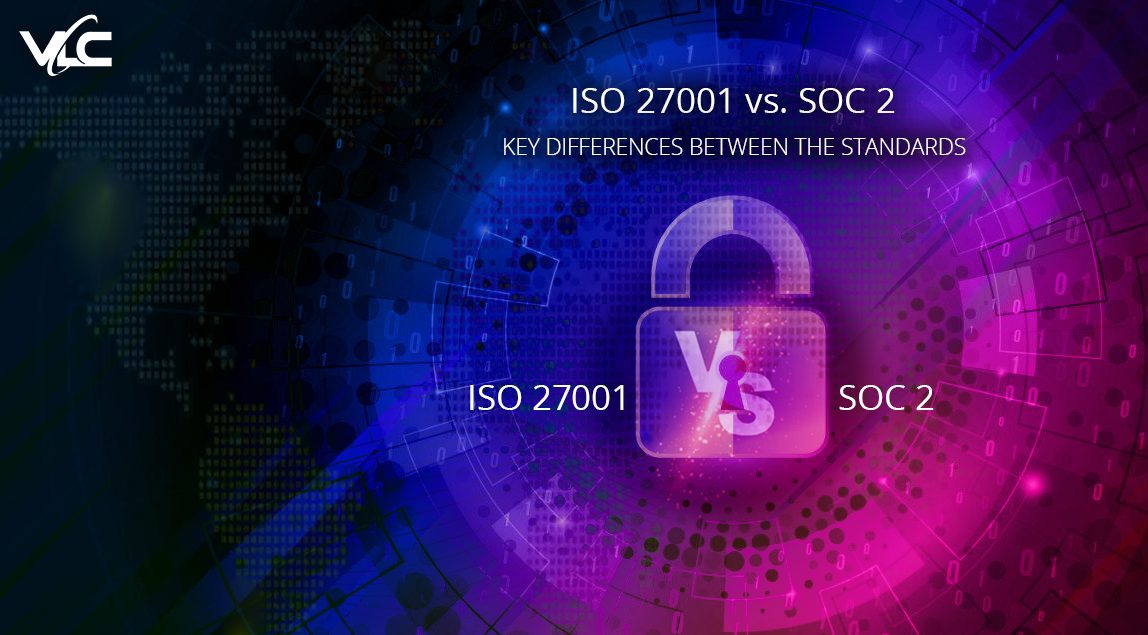Compliance: ISO 27001 vs. SOC 2
The skyrocketing prevalence of compliance efforts in the current day and age is inspired by agents such as client demands, regulatory conditions, and a firm’s enthusiasm to illustrate their in-house control setting to external parties. The most commonly sprouting question in this regard is which compliance project is the most profitable for businesses to experience. Recently, a big surge has been witnessed in both SOC 2 and ISO 27001 service tracings. However, which one is the better choice for your establishment? To understand this problem, it is necessary to perceive some historical knowledge on SOC 2 and ISO 27001 and learn their contrasts, connections, and how they could conceivably work together.
Differences
Certification vs. Attestation
One of the most critical differences between SOC 2 and ISO 27001 is that SOC reporting is usually not recognized as a certification as SOC analysis services are conducted under the provisions of AICPA attestation. Hence, they are viewed as attestation reports. Such reports present an autonomous practitioner or auditor evaluation attesting to some aspects of the control conditions concerning a service organization.
Also notably, for SOC 2, the analysis would be centered on the internal controls of a service organization to meet the guidelines related to the security, availability, probity in processing, confidentiality, and privacy policies. Furthermore, while SOC 2 mostly pertains within the United States, ISO 27001 is used worldwide.
ISO’s Certificate vs. SOC’s Deliverable Report
The next vital distinction between the two is the content and structure of the external deliverables per the commitment. For SOC 2, the closing deliverable is generally an attestation report comprising an opinion note from the service company audit firm, an affirmation letter from the service organization, a system account carrying a comprehensive anecdote on the critical elements in the organization.
The final deliverable for an ISO 27001 is the certificate. It’s a one or two paged certification holding reports on the certified firm’s scope, in-scope positions, the standard certified against, valid dates of the certificate, etc.
Drawing Similarities & Parallelisms between the both
Both SOC 2 audits and ISO 27001 certifications need an objective evaluator to grant certainty on the controls to suffice the trust services principle standards and other conditions. Furthermore, both SOC 2 and ISO 27001 have worldwide applicability to serve businesses with global presence and customer roots.
In addition to the above, both of these compliance forces concentrate on how the business approaches information security, their strategy to moderating data security risks, and warranting that the customary controls are in place to sustain the data security risk to an admissible level.
Finally, both of the compliance applications are practical methods for a business to inculcate trust in their client base and the customer market. They exhibit the management’s dedication to guaranteeing that the company is earnest about data security and appraised by an approved, certified, and qualified third-party person.
The Concluding Pay-off
SOC 2 and ISO 27001 are unique compliance exercises for businesses to engage with and can be deployed to obtain mastery over the market game, display internal controls’ scheme, drive efficiency, and perfect compliance with the regulatory provisions.
Can we place one as better than the other? No! Doing so would make it unreasonable. At the same time, while choosing whether to go with SOC 2 or ISO 27001, an organization must discern the market, the unique customer demands, and other regulatory elements needed to manifest compliance. This may help push their settlement as to which of the both will be more useful for their exceptional circumstances and conditions. Rest assured, coupling the two of them together can also drive manifold interests from an ambitious service point of view.
